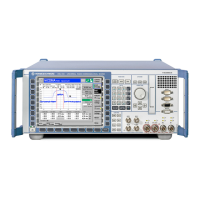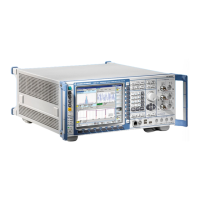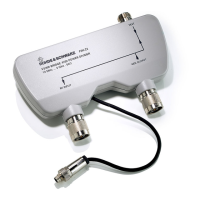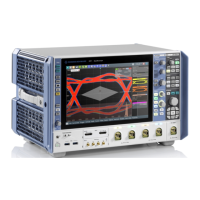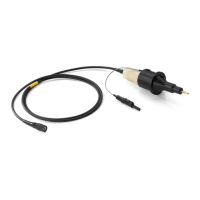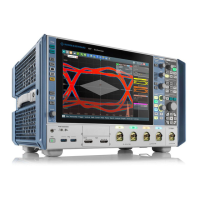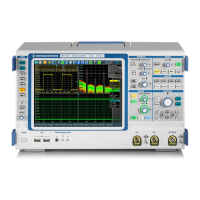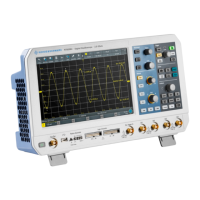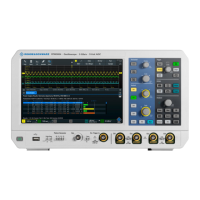CMU Introduction
1100.4903.12 5.1 E-8
5 Remote Control – Basics
This chapter provides:
• Instructions on how to set up the CMU for remote control operation.
• A general introduction to remote control of programmable instruments. This includes the description
of the command structure and syntax according to the SCPI standard, the description of command
execution and of the status registers.
• A comprehensive description of the CMU's remote control concept.
In section Special Terms and Notation on page 5.41, concepts and terms related to remote control of
the CMU in particular are described. In Chapter 6, all remote control functions of the basic unit and of
function groups RF Analyzer and Audio are described in detail. The commands for each function group
and their parameters are listed according to their function and in alphabetical order in the command
lists at the end of Chapter 6.
Program examples for the CMU can be found in Chapter 7.
Introduction
The instrument is equipped with an GPIB bus interface according to standard IEC 625.1/IEEE 488.1.
The connectors are located at the rear of the instrument and permit to connect a controller for remote
control.
This section assumes basic knowledge of GPIB bus programming and operation of the controller. A
description of the interface commands can be obtained from the relevant manuals.
Not all of the commands supported by the instrument are taken from the SCPI standard (S
tandard
Commands for Programmable Instruments), however, their syntax follows SCPI rules. The SCPI stan-
dard is based on standard IEEE 488.2 and aims at the standardization of device-specific commands,
error handling and the status registers (see section SCPI Introduction).
The requirements of the SCPI standard placed on command syntax, error handling and configuration of
the status registers are explained in detail in the following sections. Tables provide a fast overview of
the bit assignment in the status registers. The tables are supplemented by a comprehensive description
of the status registers.
Note: In contrast to instruments with manual control, which are designed for maximum possible oper-
ating convenience, the priority of remote control is the "predictability" of the device status. This
means that when incompatible settings are attempted, the command is ignored and the device
status remains unchanged, i.e. other settings are not automatically adapted. Therefore, GPIB
bus control programs should always define an initial device status (e.g. with the command
*RST) and then implement the required settings.
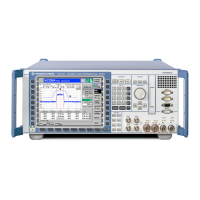
